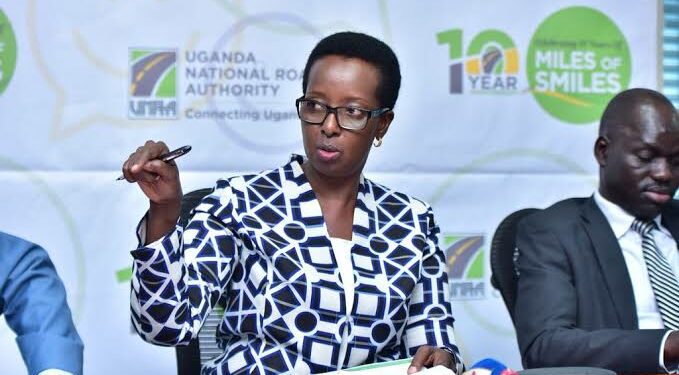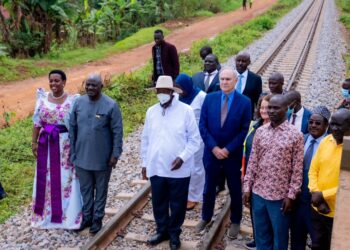Early signs have pointed to possible financial consequences for the government in the event of the proposed merger of the Ministry of Works and Transport and the Uganda National Roads Authority (UNRA), which is looming large on the administrative horizon.
Although the merger has not yet happened, on Tuesday Members of Parliament revealed possible indications that it may be quite expensive to accomplish, which raises questions about its viability and effectiveness.
For over four years the government has been considering rationalization of agencies, and the process needed the amendment of the laws since most of the affected agencies were created by the Act of Parliament.
Notable agencies recommended for dissolution and their functions mainstreaming into the mother Ministries include UNRA, NAADs, UCDA, Cotton Development Foundation (CDF), and NITA-U, according to the Bill that Public Service Minister Wilson Muruli Mukasa had introduced to Parliament.
The Uganda Registration Services Bureau (URSB) will turn over the responsibility of registering marriages to the National Identification and Registration Authority (NIRA), while the National Population Council and the National Physical Planning Council will be integrated into the National Planning Authority.
However on Tuesday during the plenary, MPs highlighted significant consequences government may incur in case the merger between UNRA and the Ministry of Work and Transport takes place.
At first, it was introduced by the Minister of Work and Transport Gen Edward Katumba Wamala who informed the House about the beauty of this marriage. Gen Katumba noted that the merger will reduce government costs on wages and noted that if it takes place government would be saving over Shs39bn monthly wages. Which money will be used to have this money used to construct roads to relieve Ugandans of potholes.
“The current staffing levels of the three entities include a total of 1544 both permanent, contingency, contract, and senior management earning a total of Shs71Bn. The Ministry of Works has 544 members of staff and the wage bill is Shs17Bn. The staffing at Road Fund is 36 which isn’t much, UNRA’s wage bill is Shs71Bn. If we get all these staff to be employed under public service terms, we shall be saving Shs39Bn in wages only per month without talking about other overheads. That is a very big saving for this Government and that money can do many roads in the country, both murram and tarmac,” said Katumba.
He also added that the merger is going to foster effective command and control which will enhance effective delivery of services. Gen Katumba informed the House that the government’s resources need to be concentrated, and prioritized in quest to achieve maximum effect. That is why the Ministry of Works was absorbing all the UNRA Staff that are willing to offer services to this nation under the public service terms and conditions in the Ministry, thus, the fear which had been expressed earlier of creating unemployment doesn’t exist because UNRA’s workers are all going to be absorbed.
Insisting that the government be freed from the financial burden of unneeded and burdensome expenditures at UNRA, Katumba urged MPs to support the motion to abolish UNRA and the Uganda Road Fund.
“To restructure and re-organize these agencies and departments of Government, we want to eliminate bloated structures and functional ambiguities in Government. Agencies operate bloated structures which aren’t aligned with the mandates and are a drain on the treasury, thus defeating one of the objectives of cost-cutting. Our country is faced with a situation where we must be extremely frugal and already, we hear cries for reforms in every sector of this country,” said Gen Katumba.
However, the Physical Infrastructure Committee of Parliament cautioned the Legislature and the Executive that eliminating UNRA might cause delays in project completion. The committee emphasised UNRA’s ongoing significance by pointing to the accomplishment of its founding mission.
Dan Kimosho of lawmaker from Kazo County also the chairperson of the committee reinforced this point, stating that UNRA’s current capacities are unable to meet Uganda’s infrastructure demands, which include tolled motorways, dual carriageways, flyovers, and major bridge constructions like the Nile Bridge. He argued in favour of strengthening UNRA rather than moving it to another location, stressing that to take on large-scale national projects, specialised knowledge and effective administration are essential.
“The relevance of UNRA is expected to even be more pertinent moving forward when more of these planned complex projects are under Public-private Partnerships. The Committee further observed that many projects under UNRA are financed by loans whose agreements between the Government of Uganda and the creditors specify that UNRA is the implementing agency. A change in the implementing agency will require re-negotiation whose outcome and duration is unpredictable,” said.
Kimosho warned that the disruptive consequences of rationalisation could cause the government to have difficulties in implementing and finishing projects. Although he acknowledged that UNRA still has difficulties, including organisational inefficiencies and governance problems, he urged against the agency’s elimination, stressing its continued importance in advancing Uganda’s national road network development.
In support of his rejection of the government’s claim that UNRA’s existence has put a financial strain on government resources and increased the burden of unnecessary spending, he pointed to the Shs75 billion in toll revenues that UNRA collected from the Kampala-Entebbe Motorway, which are deposited into the Consolidated Fund after operating and maintenance costs have been paid. Additionally, he noted that this revenue is anticipated to increase once the Busega-Mpigi Motorway is completed.
On the issue of the bloated wage bill in UNRA, he said; “The same Ministry cannot at this point be indicating that attractive remuneration offered by UNRA is a problem. Furthermore, the issue of salary disparities is not only limited to UNRA and it cuts across the entire Public Service.”
He proceeded to inform Parliament that taxpayers would be burdened with an additional expense of Shs227.24 billion to compensate all UNRA staff who would be laid off if the decision to abolish the agency is approved by MPs.
“The Certificate of Financial Implications, Shs11.562Bn had been mentioned as terminal benefits for UNRA staff, yet from the interactions, it became apparent that UNRA would require Shs227.24 Billion as severance package for staff. This is a huge cost which would erode the stated savings from the merger. It is also inappropriate to incur this unjustified cost amidst accumulated contractor debts that have to be paid,” he said.
The government’s plan to disband UNRA met resistance from MPs due to the projected large compensation package for laid-off UNRA staff following the merger. In response, Gen Katumba asked for more time to submit updated versions of the Uganda National Roads Authority Amendment Bill 2024.
Do you have a story in your community or an opinion to share with us: Email us at editorial@watchdoguganda.com













